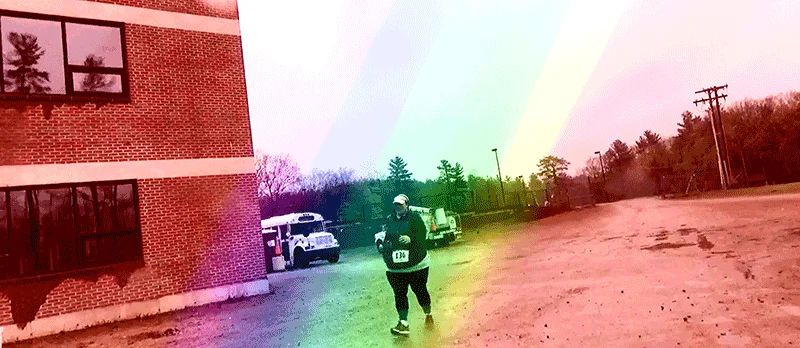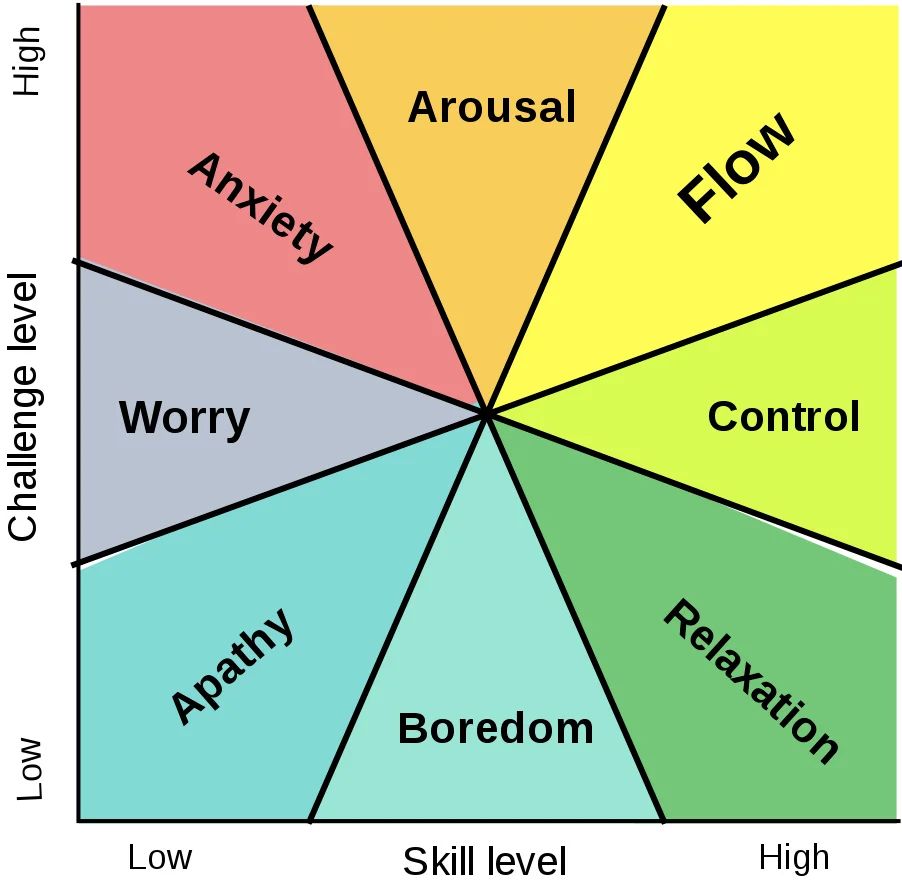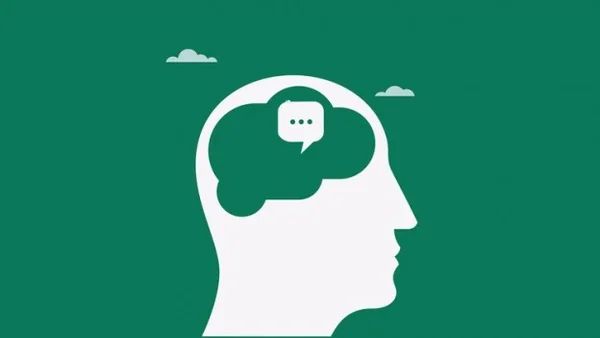How to Stay Focus and Accomplish Your Goals
We can't multitask, we allocate time blocks for productivity and enter the Flow state

Just like using a magnifying glass to focus the power of the Sun into a single spot on a pile of hay, with enough perseverance and determination, you might just be able to ignite a fire. Conversely, if you keep shifting the magnifying glass around, you wouldn’t find much success in the endeavour and end up frustrated and wondering: “This is utter nonsense! It’s just not possible to start a fire this way!”
The fact is, science has proven that there is no fault with the magnifying glass nor the Sun- so the only likely outcome is that you didn’t commit to focus the ray long enough to start the fire.
The same reasoning can be applied to our daily lives, we need to give it our all and attention (very much like focusing using the magnifying glass) on milestones and aspirations we want to achieve. To achieve this our thoughts and determination have to be focused, our direction be focused and even our efforts focused.
Cal Newport and Stephen Covey in Deep Work and 7 Habits of Highly Effective People explains that there are fundamental differences between tasks that are important and tasks that are urgent. Most people’s lives revolve around prioritising urgent and “shallow” activities such as replying emails, browsing social media and various day-to-day chores. Few people have taken to organising their lives in order to identify and prioritise important and “deep” activities.
So next time don’t write an email to your boss while texting someone or thinking about what to have for dinner. Because in doing so only cause you performing all of them suboptimally.
In this article, I will share a few things I have learnt and applied and unleash your potential by prioritising and focusing on the important tasks at hand!
We can’t multitask

In Mihaly Csikszentmihalyi’s research “Flow” he wrote
Concentration is so intense that there is no attention left over to think about anything irrelevant, or to worry about problems. Self-consciousness disappears, and the sense of time becomes distorted.
So what is distracting you at work? What is distracting you at school? While you are reading? While you are with your date? Think back and identify these things that are distracting you.
We get distracted because we can’t multitask (even though we’d like to think we can). The human brain cannot simultaneously perform more than 1 task that engages the higher brain function, at least not without losing focus. What actually occurs during “multitasking” is that we are rapidly switching between tasks which force the brain to shuffle and retrieval of information pertaining to the task. This shuffling can result in delay due to the brain’s need to refocus and process information, loss of focus and needless to say is prone to errors as well.
So hold your horses before you go exclaiming “I’m multitasking! I can drive while breathing and my heart is beating!” — basic bodily functions such as breathing and heart pumping are regulated by the autonomic nervous system which is found in most mammals, including humans. Higher brain functions are operations of the brain at the pinnacle of evolution and are unique to humans and can perform tasks such as speech and decision making. So driving is considering as a higher brain function task as is reading and replying to a text message. Try to recall motor accidents in your local news involving drivers using their phones while driving; they are not bad drivers, just that juggling between these 2 tasks causes their brain to lose focus.
Here are some common distractions and how you approach to eliminate (or minimise) them:
- Turn off notifications: Mute emails and social media feeds (including those annoying messaging groups) notifications on your phone and put it away out of sight to stop it from constantly drawing your attention away from your task
- Optimise your lifestyle habits: Constantly feeling hungry? Always feeling tired? These are distractions that can affect your productivity. If eating breakfast and sleeping can eliminate these distracting then it’s high time you revisit your daily routine
- Workplace environment: That annoying co-worker who disturbs you every 15-minute is a distraction; a noisy office is a distraction. Move to somewhere quieter, use a noise-cancelling headphone or politely request that they tone it down a notch
Being busy does not equate to being productive, so disconnect from distractions and start connecting with your thoughts and focus. As the saying goes: more haste, less speed.
We are so busy being distracted that we are forgetting to attend to ourselves.
We can allocate time blocks for productivity

Time blocking is all about scheduling tasks by time periods, in order to get more things done intentionally and ensure you stick to the schedule and not procrastinate. It can come in many forms such as a physical planner, or given modern technology, multiple time blocking apps is readily available for use.
This method of organising has been used by CEOs of multinational corporations and productivity experts such as Bill Gates, Elon Musk and Cal Newport.
Bill Gates has “Think Weeks”, where he will isolate himself a week to think and read about big and deep matters. He said during the 2008 Microsoft CEO Summit:
…I would literally take boxes (of papers containing ideas) out to a beach place and sit there for a week, reading them day and night and scribbling on them…
Michele Koh Morollo wrote about Benefit From a Think Week.
For Elon Musk, CEO of multiple companies, he has been known to work more than 80 hours a week. He schedules his tasks by breaking his time into 5 minutes time slots so that nothing is missed out and no time is wasted. He also suggested to allocate time on what matters in the USC Commencement Speech:
Focus on signal over noise. Are these efforts that people are spending, are they resulting in better product and service, if they are not, stop those efforts.
In Cal Newport book’s “Deep Work”, he wrote about improving our skills and brings long-term high-value work.
Those who can master their focus can get more and higher-quality output in less time. Which in turn frees them to produce even more and higher-quality output and stay ahead of the competition.
Cal Newport’s blog also wrote about time blocking, that if we control and schedule our time, we can ensure that every moment that we have, are consistently dedicating to efforts that matter. Because time blocking generates a massive amount of productivity.
Focus on activities that produce the most results and eliminating (or outsourcing) trivial activities, that way you can free more of your time while accomplishing more.
We can stay focus and be highly productive

You may have read about someone being in a psychological state of mind where they are highly productive or mayhap even experienced it yourself. You being so focused on a project that you don’t realise that 12 hours had elapsed. You realised that for the past 12 hours you barely had any food, still energetic despite the lack of sleep and immersed in your work that you haven’t thought of anything else. You are so focused, so absorbed into what you love doing, what you are good at that your mind simply haven’t had the opportunity to wander and everything else seem so minute at the moment, it is undoubtedly one of the best experiences in the world.
For Elon Musk and team, this is somewhere between 80 and 120 hours of work per week, where Musk said in his interview:
There were times when, some weeks … I haven’t counted exactly, but I would just sort of sleep for a few hours, work, sleep for a few hours, work, seven days a week. Some of those days must have been 120 hours or something nutty.
So how did Musk and his team find the motivation to work on a project? What drives and keep them going? It could be deadlines, perhaps pressure or even a common passion that is apparent across the team. More importantly, for us is to determine the factors that motivate us and how we can use it to increase our productivity and feel accomplished and satisfied?
We can be in the ‘Flow’ state

Most of us would agree that we would definitely feel a sense of accomplishment and satisfaction when a purpose is fulfilled yielding intrinsic rewards. This is the Flow state — where there is happiness and productivity are proportional and closely tied; an increase in both productivity and happiness.
Flow is a concept coined by Mihaly Csikszentmihalyi and defines it as “a state in which people are so involved in an activity that nothing else seems to matter; the experience is so enjoyable that people will continue to do it even at great cost, for the sheer sake of doing it.”
In layman terms, it is often referred with the saying “being in the zone” or a positive trance.
Csikszentmihalyi interviewed various professionals ranging from artists, pianists to athletes; he found that these professionals regardless of their disciplines, are able to identify and relate to a state in which they’re able to disassociate themselves from the surrounding distractions and focus singularly on the task at hand, who are able to get lost in their work.
One musician said:
You are in an ecstatic state to such a point that you feel as though you almost don’t exist. My hand seems devoid of myself, and I have nothing to do with what is happening. I just sit there it in a state of awe and wonderment. And the music just flows out of me.
Another professional said:
Work just seems so fun and super easy.
The clarity of purpose and dedication these professionals have can be harnessed when we are creating a piece of art, writing a piece of code, or a Medium article. After some analysis, Csikszentmihalyi found some criteria that must be met to attain this optimal experience in performing any task. The wonderful thing about the Flow concept is that any and every one of us can experience it.
Here is how you get to the Flow state
- Involve activities with a clear set of goals and progress. Goal setting and milestones ensure you are on the right track and not deviate from the task at hand
- These activities must have clear and quick feedback. Progress or feedback can help you maintain in a flow state by adjusting your performance level and changes demanded by the task
- These activities must be a good balance between the perceived challenges of the task and one’ perceived skills. Believe in your ability to challenge harder tasks but do not overstretch yourself least you look like a fool
Key #1: Involve activities with a clear set of goals and progress
The task undertaken must have some kind of purpose, and definitely need an outcome. Be it launching a new website or a video game, trying to land a lunar lander or building a machine learning model that predicts if an image is a cat.
Having a purpose gives us a proper mindset to progress and strive to fulfil our purposes. We should have a sense of our progress based on both tangible and intangible changes observed, to assure and know that we are actually improving, which will serve as a guide rope and fuel for us to take on even greater challenges.
Ragen Chastain set a Guinness World Record for the heaviest woman to complete a marathon wrote in her article:
I can’t explain why or how, but no matter how difficult the training and the marathon were, when they put that medal around my neck it became completely worth it, hence my personal motto “Cross finish line, get the medal.”

Key #2: These activities must have clear and quick feedback
We often assign intrinsic value to the things we enjoy because these activities are meaningful to us in one way or another. These tangible rewards are proofs of accomplishment and motivate us to take on greater challenges.
As a programmer, I experienced Flow because after hours of coding and debugging, the product begins to work. This is an example of “quick feedback”.
In data science and machine learning, after I see improvements in our model after tweaking the models and code is an example of quick feedback. Take for example my lunar lander project, when it learns that crashing is a bad idea, and then begins to learn that landing between the flags yields the most points. That feels great.
These feedbacks help us see improvements in our skills every day, and these short term rewards fuel us to greater challenges.
Key #3: These activities must be a good balance between the perceived challenges of the task and one’ perceived skills
Confidence begets competence, ignorance begets arrogance; When we choose to undertake a task, be it a project, game or a challenger, the difficulty level offered should be slightly out of reach for us.
With that said, it should not feel like an impossible task that we give up even before trying as well as not too easy at the risk of it becoming completely boring and yields no sense of accomplishment.
So what does the above mean? Let’s put it this way, you decide to play a game of basketball with friends from your college team. You would not pick a team of 10-year-olds as your opponent; neither would a team of NBA all-stars be a sensible choice as well. You would challenge a team from another college, albeit one with a slightly better track record than yours.
From the standpoint as a programmer and data scientist, professionals in our field would take hours or even days to complete a project yet we are enjoying the process of it. There are constantly so much to learn and fix and we believe that all the blockers are solvable, eventually getting it to work. For every new breakthrough, we learn new methods to solve and implement the codes and functions which in turn improves and broaden our skill sets. It is an amazing and rewarding feeling when my lunar lander not only lands between the flags but also landed softly. This is challenging enough that it was not boring yet not too daunting to deter me from even trying.

Csikszentmihalyi developed a model for his Flow theory, essentially a psychological state plotted against both skills and difficulty. On the X-axis is the range of your skill level as compared to the difficulty of the task at hand which is represented by the Y-axis.
Consider the game of basketball from the above. Say you are really good basketballer but pale in comparison to big-name players such as Jordan or Bryant. In a game against a 10-year-olds, the challenge would be low compared to your skill level (high), thus you will be at a relaxation state, feeling no pressure whatsoever because you know — and will dominate the game.
Now a game against awe-inspiring names, an NBA all-star team — insurmountable odds, and mediocre skills when displayed beside them — you will be in a state between anxiety and arousal; nervous and excited at the prospect of playing with big game stars.
So what about the game with a rival college? You have the skills. They have the skills. An even match even pundits dare not recklessly call. You will be in the state of flow — focused and performing at your optimal level. When nothing can distract you from gaining the upper hand and sweet victory over your rivals.
We should aim to be in the state of Flow regardless of anything we do. For someone who has been in the craft for years, it seems second nature to the craftsman. A pianist who has been practising for years seems to be able to perform and hitting the right keys effortlessly.
Arousal is a good state to be as well because that’s when we are curious to learn. It has elements of challenges and room for skills and personal growth. Over time, we can eventually reach the Flow state when our talent matches up with the challenge — remember — practice makes perfect.
Once we have enough practice or experience at a certain task, it gets easier to execute it, we will fall into the state Control. A state when we know and have absolute control over the situation.
Don’t give up challenging yourself; try something new, learn something and strengthen yourself. Our goal should be to find what it is that we love doing, keep improving while making it more challenging as we get better. Spend as much of your life as you possibly can in the state of Flow, because that is where you find this unbelievable ecstatic.
A friend of mine once imposed a saying that stuck with me:
When you realise that you are doing something that scares you, that is when you are growing
So go ahead and do something that is challenging and you can become better at it!




